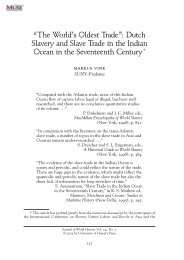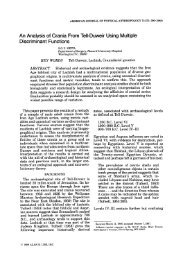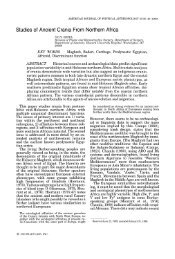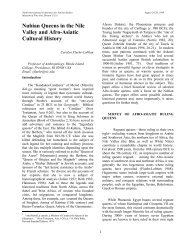THE FALSITY OF HEGEL'S THESES ON AFRICA
THE FALSITY OF HEGEL'S THESES ON AFRICA
THE FALSITY OF HEGEL'S THESES ON AFRICA
Create successful ePaper yourself
Turn your PDF publications into a flip-book with our unique Google optimized e-Paper software.
Camara / HEGEL’S <strong>THE</strong>SES <strong>ON</strong> <strong>AFRICA</strong> 91<br />
The State is, therefore, by no means a power forced on society from<br />
without; just as little is it “the reality of the ethical idea,” “the image<br />
and reality of reason,” as Hegel maintains. Rather it is a product of<br />
society at a certain stage of development; it is the admission that a<br />
society has become entangled in an insoluble contradiction with<br />
itself, that it is cleft into reconcilable antagonism which it is powerless<br />
to dispel. But in order that these antagonist classes with conflicting<br />
economic interests, might not consume themselves and<br />
society in sterile struggle, a power seemingly standing above society<br />
became necessary for the purpose of moderating the conflict, of<br />
keeping it within the bounds of “order”; and this power, arisen out<br />
of society, placing itself above it, and increasingly alienating itself<br />
from it, is the State. (pp. 158-159)<br />
However, as far as Africa is concerned—although the definition<br />
applies—the determination of the process of state emergence is<br />
even more complex. Two positions present themselves, both agreeing<br />
with Engels but conflicting with each other. The first group sees<br />
the emergence of the state in Africa as endogenous and proper to<br />
Africa; the second explains the state in Africa from exogenous factors,<br />
the endogenous being secondary. The first position is a reaction<br />
to the second; therefore, let me start with the second.<br />
For authors such as Samir Amin (1978) or Coquery-Vidrovitch<br />
(1997), external or international commerce gave birth to the state in<br />
Africa or more precisely to the centralized Sudanese empires of<br />
Ghana, Mali, and Songhai. Their position is based on the fact that<br />
these empires have had solid trade relations with mostly Arabs and<br />
partly with Europeans through trans-Saharan commerce. Theoretically,<br />
this stand corresponds to Marx’s (1978) stressing the civilizing<br />
effect of external trade and its importance in the generalization<br />
of capitalist relationships in Europe. In this sense, Maurice Godelier<br />
(1975) affirms that “in West Africa, the emergence of the Ghana,<br />
Mali and Songhai empires . . . seems to be linked to the tribal aristocrats’<br />
control on the exchange of precious products, gold, ivory,<br />
skins and so on, between Black and White Africa” (p. 30).<br />
The refutation of this position is now the goal of the second<br />
group. The advocates of endogenous causes (Dieng, Diagne, and<br />
particular African philosophers) see the positing of commerce, circulation,<br />
exchange, and merchant relationships as being unable to




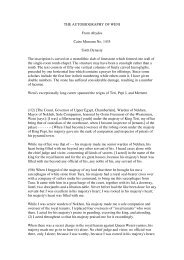
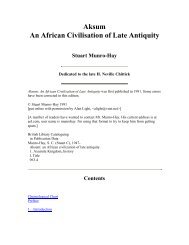
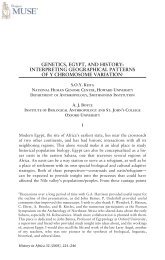

![The Negro trail blazers of California [microform] : a ... - Homestead](https://img.yumpu.com/32436613/1/174x260/the-negro-trail-blazers-of-california-microform-a-homestead.jpg?quality=85)
